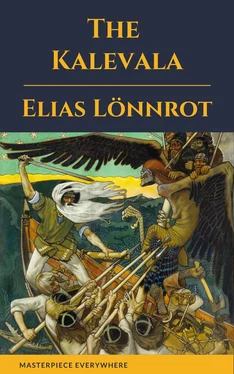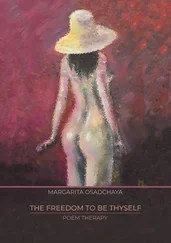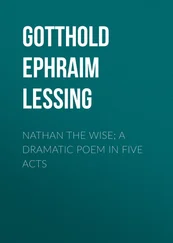These are not the tears of women,
In this way weep bearded heroes;
This the hero-cry of anguish."
Quick she pushed her boat to water,
To the floods her goodly vessel,
Straightway rows with lightning swiftness,
To the weeping Wainamoinen;
Gives the hero consolation,
Comfort gives she to the minstrel
Wailing in a grove of willows,
In his piteous condition,
Mid the alder-trees and aspens,
On the border of the salt-sea,
Visage trembling, locks dishevelled.
Ears, and eyes, and lips of sadness.
Louhi, hostess of Pohyola,
Thus addresses Wainamoinen:
"Tell me what has been thy folly,
That thou art in this condition."
Old and truthful Wainamoinen
Lifts aloft his bead and answers:
"Well I know that it is folly
That has brought me all this trouble,
Brought me to this land of strangers,
To these regions unbefitting
Happy was I with my kindred,
In my distant home and country,
There my name was named in honor."
Louhi, hostess of Pohyola,
Thus replied to Wainamoinen:
"I would gain the information,
Should I be allowed to ask thee,
Who thou art of ancient heroes,
Who of all the host of heroes?
This is Wainamoinen's answer:
"Formerly my name was mentioned,
Often was I heard and honored,
As a minstrel and magician,
In the long and dreary winters,
Called the 'Singer of the Northland,
In the valleys of Wainola,
On the plains of Kalevala;
No one thought that such misfortune
Could befall wise Wainamoinen."
Louhi, hostess of Pohyola,
Thus replied in cheering accents
"Rise, O hero, from discomfort,
From thy bed among the willows;
Enter now upon the new-way,
Come with me to yonder dwelling,
There relate thy strange adventures,
Tell the tale of thy misfortunes."
Now she takes the hapless hero,
Lifts him from his bed of sorrow,
In her boat she safely seats him,
And begins at once her rowing,
Rows with steady hand and mighty
To her home upon the sea-shore,
To the dwellings of Pohyola.
There she feeds the starving hero,
Rests the ancient Wainamoinen,
Gives him warmth, and food, and shelter,
And the hero soon recovers.
Then the hostess of Pohyola
Questioned thus the ancient singer:
"Wherefore didst thou, Wainamoinen,
Friend and fellow of the waters,
Weep in sad and bitter accents,
On the border of the ocean,
Mid the aspens and the willows?"
This is Wainamoinen's answer:
Had good reason for my weeping,
Cause enough for all my sorrow;
Long indeed had I been swimming,
Had been buffeting the billows,
In the far outstretching waters.
This the reason for my weeping;
I have lived in toil and torture,
Since I left my home and country,
Left my native land and kindred,
Came to this the land of strangers,
To these unfamiliar portals.
All thy trees have thorns to wound me,
All thy branches, spines to pierce me,
Even birches give me trouble,
And the alders bring discomfort,
My companions, winds and waters,
Only does the Sun seem friendly,
In this cold and cruel country,
Near these unfamiliar portals."
Louhi thereupon made answer,
Weep no longer, Wainamoinen,
Grieve no more, thou friend of waters,
Good for thee, that thou shouldst linger
At our friendly homes and firesides;
Thou shalt live with us and welcome,
Thou shalt sit at all our tables,
Eat the salmon from our platters,
Eat the sweetest of our bacon,
Eat the whiting from our waters."
Answers thus old Wainamoinen,
Grateful for the invitation:
"Never do I court strange tables,
Though the food be rare and toothsome;
One's own country is the dearest,
One's own table is the sweetest,
One's own home, the most attractive.
Grant, kind Ukko, God above me,
Thou Creator, full of mercy,
Grant that I again may visit
My beloved home and country.
Better dwell in one's own country,
There to drink Its healthful waters
From the simple cups of birch-wood,
Than in foreign lands to wander,
There to drink the rarest liquors
From the golden bowls of strangers."
Louhi, hostess of Pohyola,
Thus replied to the magician:
"What reward wilt thou award me,
Should I take thee where thou willest,
To thy native land and kindred,
To thy much-loved home and fireside,
To the meadows of Wainola,
To the plains of Kalevala?"
These the words of Wainamoinen:
"What would be reward sufficient,
Shouldst thou take me to my people,
To my home and distant country,
To the borders of the Northland,
There to hear the cuckoo singing,
Hear the sacred cuckoo calling?
Shall I give thee golden treasures,
Fill thy cups with finest silver?"
This is Louhi's simple answer:
"O thou ancient Wainamoinen,
Only true and wise magician,
Never will I ask for riches,
Never ask for gold nor silver;
Gold is for the children's flowers,
Silver for the stallion's jewels.
Canst thou forge for me the Sampo,
Hammer me the lid in colors,
From the tips of white-swan feathers
From the milk of greatest virtue,
From a single grain of barley,
From the finest wool of lambkins?
"I will give thee too my daughter,
Will reward thee through the maiden,
Take thee to thy much-loved home-land,
To the borders of Wainola,
There to hear the cuckoo singing,
Hear the sacred cuckoo calling."
Wainamoinen, much regretting,
Gave this answer to her question:
"Cannot forge for thee the Sampo,
Cannot make the lid in colors.
Take me to my distant country,
I will send thee Ilmarinen,
He will forge for thee the Sampo,
Hammer thee the lid in colors,
He may win thy lovely maiden;
Worthy smith is Ilmarinen,
In this art is first and master;
He, the one that forged the heavens.
Forged the air a hollow cover;
Nowhere see we hammer-traces,
Nowhere find a single tongs-mark."
Thus replied the hostess, Louhi:
"Him alone I'll give my daughter,
Promise him my child in marriage,
Who for me will forge the Sampo,
Hammer me the lid in colors,
From the tips of white-swan feathers,
From the milk of greatest virtue,
From a single grain of barley,
From the finest wool of lambkins."
Thereupon the hostess Louhi,
Harnessed quick a dappled courser,
Hitched him to her sledge of birch-wood,
Placed within it Wainamoinen,
Placed the hero on the cross-bench,
Made him ready for his journey;
Then addressed the ancient minstrel,
These the words that Louhi uttered:
"Do not raise thine eyes to heaven,
Look not upward on thy journey,
While thy steed is fresh and frisky,
While the day-star lights thy pathway,
Ere the evening star has risen;
If thine eyes be lifted upward,
While the day-star lights thy pathway,
Dire misfortune will befall thee,
Some sad fate will overtake thee."
Then the ancient Wainamoinen
Fleetly drove upon his journey,
Merrily he hastened homeward,
Hastened homeward, happy-hearted
From the ever-darksome Northland
From the dismal Sariola.
Rune VIII. Maiden of the Rainbow.
Pohyola's fair and winsome daughter,
Glory of the land and water,
Sat upon the bow of heaven,
On its highest arch resplendent,
In a gown of richest fabric,
Читать дальше












